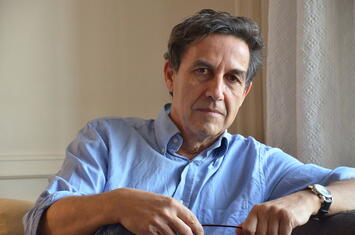
French historian and demographer Emmanuel Todd was the first person to have predicted the fall of the Soviet Union. He noted that, unusually, its infant mortality rate was rising, and that they had even ceased publishing that statistic. Based on this and other data, he concluded that the Soviet Union had entered “the final fall.”
In something of a parallel to that work, his new book, La défaite de l’Occident (The Defeat of the West), published in January, says that the West is on track to lose the conflict in Ukraine. Unsurprisingly, this was received poorly by critics who accused him of repeating Kremlin propaganda.
What caught my attention was that Todd blames the fall of Protestantism for unleashing a crisis in the heart of the West itself. And that this rather than Russia’s invasion of Ukraine was the true source of our problems. He writes, “The real problem facing the world today is not Russian will to power, which is very limited. It’s decadence at its American center, which is unlimited.” (You can see why people hated this). I read the book for myself to see what he had to say about Protestantism.
My earliest readers will know that that I’ve been learning French. I’ve mastered enough to essay Todd’s book, but am still sub-fluent. So you should validate the translations I provide here before relying on them, as they are a mixture of Google Translate and my own work.
Much of Todd’s research work has focused on the influence of historic family structures on ideologies. For example, he argues that the Russian family structure created a social state that was amenable to communism. Russian families were strongly patriarchal, and all of the sons lived with their father. This created an ideal of, simultaneously, authoritarianism (of the father) and equality (between the brothers). Communism was, in a sense, an embodiment of this type of social order.
There’s a copious amount of discussion about family structures in this book, but Todd adds to that an overlay of religion. He sees Protestantism, rather than the market, industry, or technology as the heart of the modern West. Its most critical impact was a drive for universal literacy, so that all the people could read the Bible in their own language. It also created the famed Protestant work ethic. An educated, industrious populous led to the takeoff of economic growth in Protestant countries. Indeed, Protestant countries were the most advanced industrial economies in Europe and basically remain the leaders. (Todd believes France benefitted from being adjacent to a band of Protestant nations).
If Protestantism brought positives to Europe, it also introduced the idea of inequality in a profound way, through its idea of the elect and the damned. Hence Protestant countries also created the worst forms of racism (as in the United States) and antisemitism (as in Germany). He cites the fact that Protestant areas of Germany were more supportive of the Nazis than Catholic ones.
Read the rest of this piece at Aaron Renn Substack.
Aaron M. Renn is an opinion-leading urban analyst, consultant, speaker and writer on a mission to help America's cities and people thrive and find real success in the 21st century. He focuses on urban, economic development and infrastructure policy in the greater American Midwest. He also regularly contributes to and is cited by national and global media outlets, and his work has appeared in many publications, including the The Guardian, The New York Times and The Washington Post.
Photo: Oestani via Wikimedia. under CC 4.0 License.












